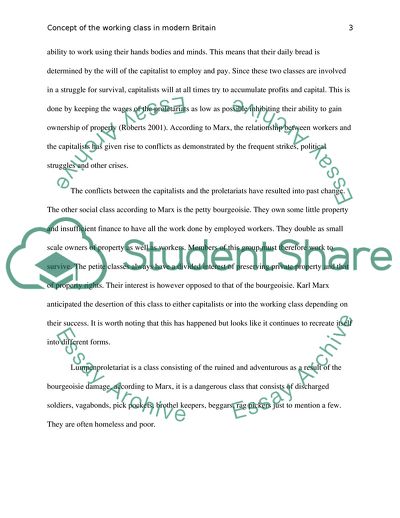Cite this document
(Concept of the Working Class in Modern Britain Case Study Example | Topics and Well Written Essays - 1750 words - 1, n.d.)
Concept of the Working Class in Modern Britain Case Study Example | Topics and Well Written Essays - 1750 words - 1. https://studentshare.org/sociology/1769470-critically-evaluate-the-concept-of-the-working-class-in-modern-britain
Concept of the Working Class in Modern Britain Case Study Example | Topics and Well Written Essays - 1750 words - 1. https://studentshare.org/sociology/1769470-critically-evaluate-the-concept-of-the-working-class-in-modern-britain
(Concept of the Working Class in Modern Britain Case Study Example | Topics and Well Written Essays - 1750 Words - 1)
Concept of the Working Class in Modern Britain Case Study Example | Topics and Well Written Essays - 1750 Words - 1. https://studentshare.org/sociology/1769470-critically-evaluate-the-concept-of-the-working-class-in-modern-britain.
Concept of the Working Class in Modern Britain Case Study Example | Topics and Well Written Essays - 1750 Words - 1. https://studentshare.org/sociology/1769470-critically-evaluate-the-concept-of-the-working-class-in-modern-britain.
“Concept of the Working Class in Modern Britain Case Study Example | Topics and Well Written Essays - 1750 Words - 1”. https://studentshare.org/sociology/1769470-critically-evaluate-the-concept-of-the-working-class-in-modern-britain.


